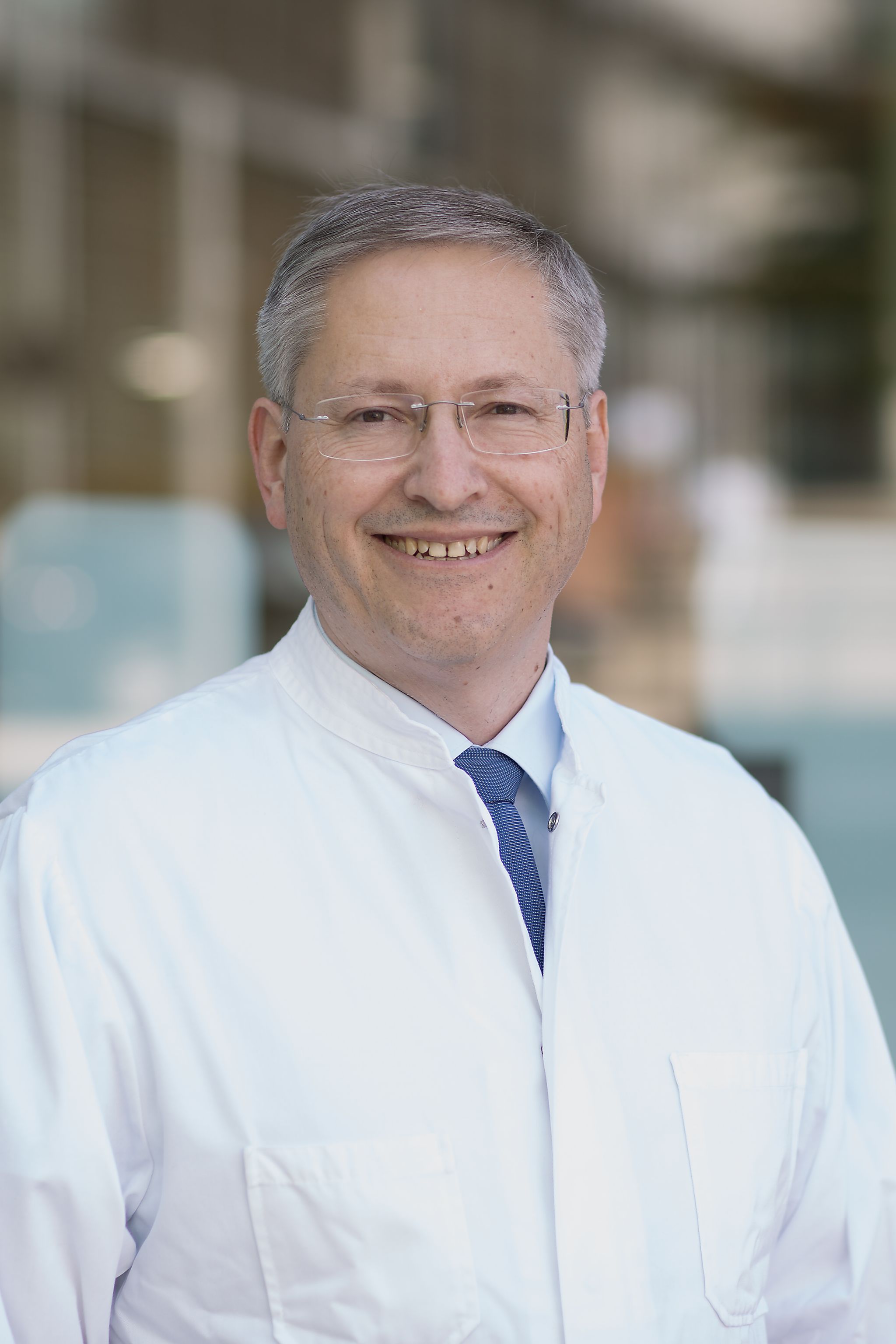Researcher Database

Prof. Dr. Peter Lang
Klinik für Kinder- und Jugendmedizin, Abteilung I
Hoppe-Seyler-Str.1
72076 Tübingen
Program
Cancer Immunotherapy (CI)
Summary
Prospective phase I/II study: Patient-individualized peptide vaccination based on whole exome sequencing with adjuvant GM-CSF and IFNa in children with relapsed acute lymphoblastic leukemia
Aim of this project is the conduction of a of a prospective multicenter phase I/II study vaccinating children with relapsed acute lymphoblastic leukemia (≥CR3 or 1st relapse after stem cell transplantation) with patient-individualized tumor-specific peptides. Tumor-specific nonsynonymous mutations will be identified by comparative next generation sequencing (NGS) of the whole exome and the transcriptome of each patients’ tumor and normal tissue. A peptide vaccine cocktail will be designed based on the identified mutations and the HLA-typing of the patient and synthesized in the GMP facility Tübingen. Main questions will be to investigate, whether it is possible to induce a mutation-specific immune response in pediatric ALL patients after salvage chemotherapy or stem cell transplantation. Possible side effects and toxicity of the treatment will be assessed. Indications, if our approach has a beneficial effect on minimal residual disease (MRD) levels as well as an event free survival of the patients will be evaluated. Additionally, the tumor-specificity and immunogenicity of the vaccination peptides will be examined in vitro. Primary objective is to evaluate the safety, clinical toxicity and in vivo immunological effects of a patient-individualized peptide vaccination in pediatric patients with acute lymphoblastic leukemia who experienced ≥ 2nd relapse or ≥ 1st relapse after previous stem cell transplantation.Primary endpoint is "success of treatment" defined as a patient showing a vaccination-induced T-cell response without unacceptable toxicity and acute GvHD ≥ Grade III or extensive chronic GvHD until day 120 (after 10 vaccinations).
Working plan:
1. Patients will be treated with salvage chemotherapy or stem cell transplantation according to the medical advice of the physician in charge. Design and synthesis of a patient-individual vaccine cocktail containing peptides derived from mutated sequences (iVaccine) will start right after the patient has achieved another remission.
2. Reference DNA will be extracted from skin biopsies, or if available, from MRD-free blood or saliva of the patient.
3. Patient-individual tumor-specific variants and insertions and deletions will be identified by whole exome sequencing of tumor and corresponding normal tissue and a differential analysis of both datasets.
4. Peptide sequences with an HLA-binding motif fitting to the patients HLA type will be predicted based on the identified tumor-specific variants.
5. The corresponding variants of the selected peptides will be validated by deep sequencing, and the final peptide cocktail will be designed.
6. Validated and selected peptide sequences will be synthesized and formulated according to GMP criteria to the patient-individualized peptide cocktail.
7. Patients will be vaccinated intradermally with a patient-individual peptide cocktail consisting of 3 - 5 individual peptides As adjuvants, GM-CSF (Sagramostim) will be injected subcutaneously right before and Imiquimod cream (Aldara) will be applied topically 30 minutes before and 24 h after the vaccination at the vaccination site.